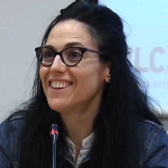
The European Union has been very active in this field in the last biennium. The publication of the Ethics Guidelines for Trustworthy AI by the High-Level Expert Group on Artificial Intelligence, was a particularly significant milestone. These guidelines involve certain core values, the so-called ethical principles of:
- Respect for human autonomy.
- Prevention of harm.
- Fairness.
- Explainability.
And they propose a list of ethical impact assessments focused on seven pillars: 1) human agency and oversight; 2) technical robustness and safety; 3) privacy and data governance; 4) transparency; 5) diversity, non-discrimination and fairness; 6) societal and environmental well-being; and 7) accountability.
On the other hand, the European Parliament first, and the European Commission subsequently, have promoted legislative proposals that could underline ethical principles and include those that by their nature can be expressed through regulatory mandates. In addition, they would place risk analysis and risk management at the heart of regulatory compliance.
La CafeterIA will address these issues from a triple perspective: ethical-legal, research and business. Firstly, it is of interest to know the point of view of those who accompany the regulatory processes from the point of view of analysis, doctrine and expert advice.
From another point of view, it is significant to know the research approach to these principles. Our AI research teams are often faced with the need to determine the ethical and legal requirements of their activity, and on no fewer occasions with the need to assess the ultimate meaning and viability of a given research project from the point of view of values.
Finally, the business world incorporates such impact assessments into its practices and must develop governance models that make it feasible to meet business objectives with an approach that is necessarily bounded by the guarantee of rights.
To discuss these matters, we have the following speakers:
|
|
|
|
|
|
Full-time Lecturer (Ph.D.) of Constitutional Law. Data Protection Delegate of the University of Alcalá. |
Full University Professor of Ethics at the Universitat Jaume I of Castelló. Director of the Observatory of Ethics and Corporate Social Responsibility of the Valencian Community. |
Professor and researcher at the Universitat Politècnica de Catalunya (UPC) and head of the High-Performance Artificial Intelligence Area of the National Supercomputing Centre in Barcelona. |
Global Director of AI and Innovation Marketing at Microsoft, where she defines incubation strategies for emerging technologies in collaboration with research and development teams. |
Conversation
Session held on 9 June 2021
RELEVANT DOCUMENTS FOR THIS SESSION:
- Directrius Ètiques per a una IA fiable pel Grup d'experts d'alt nivell sobre intel·ligència artificial.
- Proposal for a Regulation laying down harmonised rules on artificial intelligence.
- Documentació complementaria.
WHAT IS THE CAFETERIA?
In our CafeterIA we are looking for an adaptable online format for the dissemination of knowledge and scientific debate. These are its characteristics:
- The CafeterIA is an online activity with an approximate duration of 45 minutes that we hold at coffee time, 4 p.m.
- It will have a maximum of three speakers who will discuss an issue of interest to which they are professionally related from different points of view (research, business or administration).
- Its ambition is to be a meeting place open to dialogue and interaction with the audience.












